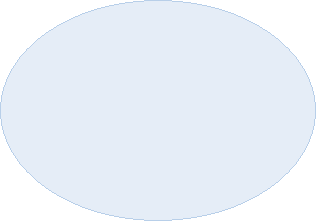Conclusions
Decisions
Critical Thinking
Clarity
Conclusions
We contrast your everyday automatic thinking with Critical Thinking.
Decisions
Clarity
Conclusions
Empty Bucket
Inspection
Need
Why?
So What?
Socratic Questioning
Listening to the Answer
Broader / Subordinate
Facts
Observations
Experiences
Beliefs
Assumptions
Get Clear
Reach
Conclusions
Focus
Everyone Aligned
Time and Money spent on the right problem
People working on the right problem or decision
Clarity
Thoughtful,
Defendable and Clear Conclusions
New ideas
Solid Conclusions
Critical Thinking skills gained can be applied to:
• General problem solving and decision making
• New product ideas and creation
• Techniques to be a Thinking Coach
• Short and long term business strategies
• Improved development processes and quality
• Improved operational efficiency
• Crisis Management
• Revenue generation and cost reduction strategies
• Customer care improvement
Contact us for more information or to schedule a Workshop
Thinking Coach
Need
Criteria
Decisions
Stronger foundation for decisions
More time on getting clear and less time and rework needed for decisions
Automatic Thinking
We train the attendees in the use of various techniques for Getting Clear, Reaching Conclusions and Making Decisions
and then train them to help others use these as a Thinking Coach
Weaker foundation for decisions
Less time on getting clear and more time and rework needed for decisions
Critical Thinking
Being a Thinking Coach
Course #322 / #722
Duration: 1 Day, At customers location or Virtual Live
Successful Decisions
Less iterations and redo's
Alignment
Faster and Quality Decision Making
Decisions
Clarity
Overview
This is a One day, Add on Course for those who took our 1, 2 or 3 day critical thinking workshop
. A Thinking coach is one who gets others to Think. The first hour will review prior learning and then the rest of the day is all about Thinking Coach, with significant role play and peer feedback as the participants learn and then practice their Thinking Coach skills in a variety of situations. This course is for Supervisors, Managers, Directors and Leaders.
As a leader, facilitator, supervisor, or manager, we
’
re constantly in the position to help others in situations that require understanding, analysis and thought. Helping can be provided in several forms. We can tell or order others to do things, we can provide others with our suggestions, or we can help others think through a situation so they can come up with solutions.
Helping others by telling them what to do is appropriate in a triage situation when one has the knowledge and experience to
“
be in charge
”
. For example, if someone is about to do something that may result in serious injury, it
’
s appropriate and effective to step in and say or do something that will prevent the accident.
Providing suggestions is helpful, especially when others don
’
t have the knowledge to draw on. You might suggest to one of your employees a place to find information, or how to handle a situation.
Who
’
s doing the thinking when you tell someone what to do, or make a suggestion? You are. Many times, this is appropriate. However, if you want others to think, if you want to generate new ideas, if you want to ensure others are accountable for their work, engaged in their work, proud of their work, if you want to help others to grow, if you want to leverage your team, then you want them to come up with ideas and solutions. To do this, you need to be a Thinking Coach.
Thinking Coach is one of the most leveraged and powerful tools a leader can have. Whether you
’
re managing up, across or down, interacting with customers or third parties, being a Thinking Coach is a discipline to help people focus on true issues and implement thinking as they solve problems and make decisions.
Learning Objectives:
Understand what a Thinking Coach is
Identify content thinking vs context thinking
Identify situations where Thinking Coach is appropriate
Learn the core critical thinking tools for being a Thinking Coach
Be practiced in Being a Thinking Coach
Topics Covered
: (Practice exercises and Role play throughout)
The Thinking Coach
What is it (Job Description, Rules and Objectives)
Moving from Content to Context
Understanding the job of a problem solver
Being a Thinking Coach for Clarity
Tools and techniques to help others be clear on their issue, problem, goal, objective
Being a Thinking Coach for Solutions
Tools to help others think through their process of coming up with solutions.
Helping others understand their Facts, Observation, Experiences, Assumptions and Beliefs
Recognizing “I don’t know” and what to do about it.
How to critique a solution without being a critic
Being a Thinking Coach for Decisions – Helping other get to action
Being a Thinking Coach for Innovation - Getting others to think beyond their current thinking
Being a Thinking Coach for:
One-on-One discussions
Facilitating a group
When there’s a disagreement or multiple ideas
Wearing a Thinking Coach and a Headscratcher (problem solver) hat together
Who is this course for:
Existing Supervisors, Managers, Directors and Senior Leadership.
Prerequisite – At least 2 years in a supervisory or leadership position
What's unique about our workshop? This isn't your ordinary "academic" day. It's not just "theory", but pragmatic, proven techniques for solving real world business problems, strategies and challenges.
Customized
We customize the workshop to your business, with real examples and exercises that come from interviews with would be attendees. The attendees learn critical thinking AND see it in action with their own day-to-day issues.
What's unique about our workshop? This isn't your ordinary "academic" day. It's not just "theory", but pragmatic, proven techniques for solving real world business problems, strategies and challenges.
Customized
We customize the workshop to your business, with real examples and exercises that come from interviews with would be attendees. The attendees learn critical thinking AND see it in action with their own day-to-day issues.
Using concepts from our model we created a simple framework for Critical Thinking








